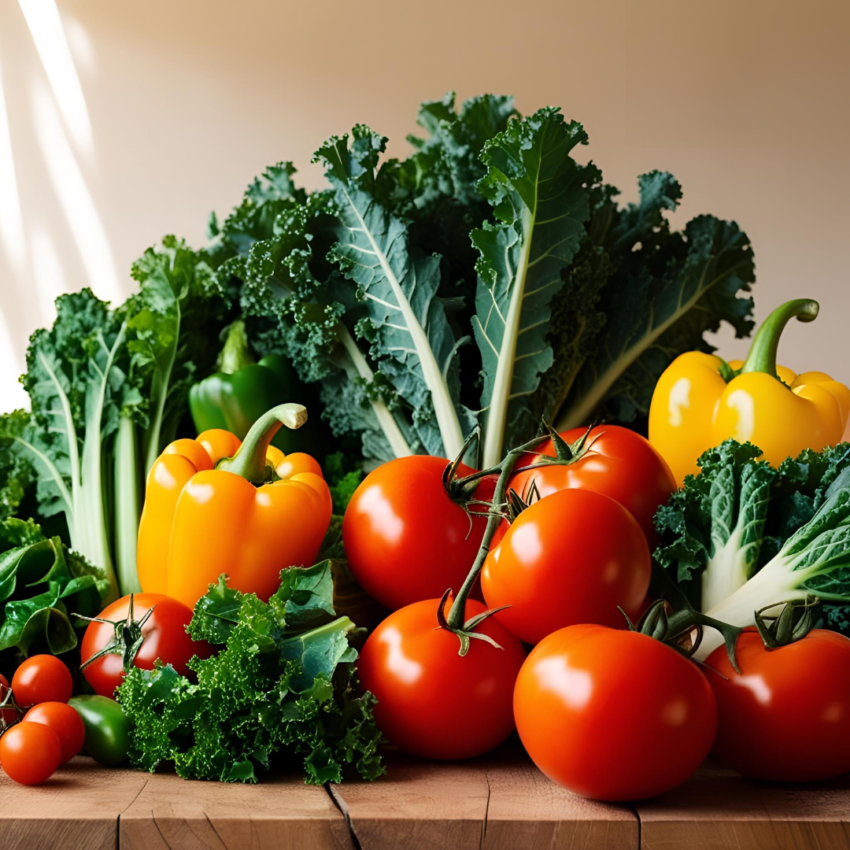Vegetables are the most powerful medicine nature has provided. Packed with vitamins, minerals, antioxidants and fiber, they’re not just a daily staple — they’re a lifeline for health longevity. Whether you’re a veggie fanatic or still feeling your way into the kale world, very few food changes can possibly change your plate and your life in such a profound way as understanding their powerful health benefits. Here’s a look at 15 good reasons to load half your plate with veggies each day.
Power Up Your Own Immune System
Spinach, broccoli, and bell peppers are packed with immune-boosting nutrients:
- Vitamin C (found in red peppers) boosts white blood cell production.
- Zinc (from mushrooms and peas): This helps fend off infections.
- Beta-carotene (found in carrots and sweet potatoes) is converted into vitamin A, which protects you from pathogens.
A high intake of vegetables lowers the risk of respiratory illnesses by 25%, a study published in The American Journal of Clinical Nutrition showed.
Protect Your Heart
Heart disease is the leading cause of global death but vegetables may cut your risk:
- Leafy greens (kale, Swiss chard) reduce blood pressure with potassium and nitrates.
- Brussels sprouts and artichokes reduce LDL cholesterol via fiber.
- Beets and tomatoes have antioxidants that fight inflammation in the arteries.
For a healthy heart, the American Heart Association suggests having 4-5 servings of veggies in a day.
Fuel Digestive Wellness
Vegetables: Your gut loves those:
- Fiber (25g/day from veggies like lentils and avocados) prevents constipation, and feeds the good gut bacteria.
- Fermented veggies (kimchi, sauerkraut) are probiotic.
- Prebiotics found in garlic and onions feed a healthy microbiome, associated with lower IBS symptoms.
Combat Chronic Inflammation
Chronic inflammation fuels diseases such as arthritis and diabetes. Vegetables fight back:
- Turmeric (a root veggie) holds curcumin, which is a strong anti-inflammatory.
- Cruciferous vegetables (blooming cabbage, cabbage) lower inflammatory markers such as CRP.
- Brussels sprouts and spinach have omega-3s that reduce inflammation naturally.
Sharpen Brain Function
Vegetables are brain food:
- Leafy greens (kale, collards): Folate and vitamin K to enhance memory, focus
- Beets improve blood flow to the brain, improving the cognitive performance.
- Protect against Alzheimer’s and dementia with purple cabbage antioxidants
Support Healthy Weight Loss
Low-calorie, nutty veggies are weight reduction allies:
- Staying full longer: High water content (cucumbers, zucchini)
- Fiber slows the digestion of sugar, so we feel less sugar-cravings.
- Trade rice for cauliflower rice or pasta for zucchini noodles to cut calories without cutting out satisfaction.
Guard Against Cancer
The American Institute for Cancer Research gives credit to veggies for reducing cancer risk:
- Sulforaphane in broccoli and kale detoxes carcinogens.
- Heat-treated tomatoes: Lycopene reduces the risk of prostate cancer
- Tumor growth is inhibited by glucosinolates in radishes and arugula.
Strengthen Bones and Joints
Make a strong skeleton with veggies:
- The calcium in collard greens and okra matches dairy.
- Dark leafy greens improve bone density with vitamin K.
- Magnesium from spinach can help alleviate joint pain and stiffness.
Boost Energy Levels
Ditch the caffeine crash! Vegetables offer sustained energy:
- The iron in Swiss chard and lentils combats fatigue.
- Vitamin B in asparagus helps you with mitochondria.
- Natural nitrates in beets boost athletic endurance by 5%, according to a Journal of Nutrition study.
Detoxify Your Body Naturally
Veggies detox without elimination diets:
- Broccoli sprouts turn on liver enzymes to remove toxins.
- Celery and cucumbers have hydrating properties and support kidney function.
- The chlorophyll of the green veggies attaches to heavy metals for safe removal.
Balance Blood Sugar
Diabetic non-starchy vegetables are:
- Green beans and eggplant contain fiber that slows glucose absorption.
- Broccoli strengthens insulin response thanks to chromium.
- Leafy greens lower type 2 diabetes risk by 14%, according to a Harvard study.
Enhance Skin Health
Glow from the inside out:
- Vitamin C, found in bell peppers, stimulates collagen for firm skin.
- Sweet Potatoes — Beta-carotene in sweet potatoes protect from sun damage.
- Hydrating veggies (cucumbers, celery) and help acne.
Enhance Your Mental Health and Mood
Vegetables love your gut-brain axis:
- Romaine lettuce and asparagus improve depression risk with folate.
- Purple potatoes reduce oxidative stress, which has been associated with anxiety, through their antioxidants.
- A study in Nutritional Neuroscience in 2023 associated high veggie intake with 35% reduced odds of mood disorders.
Promote Longevity
Blue Zones—areas of the world with the longest life expectancies—focus heavily on vegetables:
- Okinawans eat sweet potatoes every day.
- Sardinians eat a lot of leafy greens and fennel.
Their eating patterns reduce inflammation and oxidative stress, major causes of aging.
Protect the Planet
Veggies: The ultimate self-care, even earth-care:
- Conventional meat-heavy diets produce 50% more greenhouse gases than plant-based diets.
- Crop farming consumes 90% less water than livestock.
Eating Vegetables: Pro Tips to Ensure You Get the Most Out of Them
- Eat the Rainbow: Different colors = varied niches (red for lycopene, green for chlorophyll).
- Cook Smart:Light steam or roast to retain nutrients (don’t overcook)
- Buy Organic When You Can: Minimize pesticide exposure for greens like spinach, and kale.
- Mix Raw and Cooked: Raw veggies hold onto vitamin C; cooked ones increase antioxidant access.
Final Thoughts
Vegetables are not a food, they’re a daily prescription for life. Their perks are endless — from protecting your heart to honing your mind. Think baby steps: toss some spinach in your smoothie, munch on crispy bell
